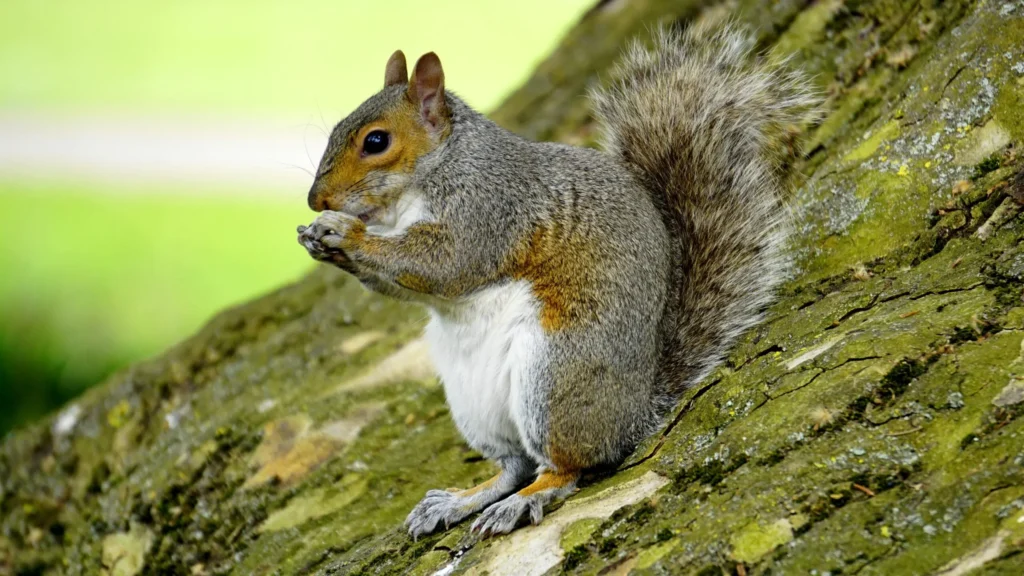
Interesting Wildlife Facts About Squirrels
- Squirrels are highly agile rodents, capable of leaping great distances and climbing almost any surface.
- There are over 280 species of squirrels, including tree squirrels, ground squirrels, and flying squirrels.
- Squirrels play an important role in forest regeneration by burying nuts, many of which grow into new trees.
- Flying squirrels don’t truly fly but glide using a special membrane called a patagium.
- Squirrels’ teeth grow continuously, enabling them to gnaw on hard materials like nuts and wood.
Nuisance Issues with Squirrels
Squirrels can cause various problems for property owners, especially when they take up residence in homes or yards:
- Attic Infestations: Squirrels often enter attics through roof vents, gaps, or chimneys to nest.
- Chewing Damage: They chew on wires, wood, and insulation, creating fire hazards and structural issues.
- Garden Raids: Squirrels dig up bulbs, eat vegetables, and raid bird feeders, disrupting gardens and landscapes.
- Noise and Activity: Their scurrying and scratching sounds can disturb homeowners, especially early in the morning.
Squirrel Behavior
- Activity Patterns: Squirrels are diurnal, most active during the early morning and late afternoon.
- Habitat Preferences: They thrive in urban, suburban, and rural areas, often nesting in trees or structures.
- Diet: Squirrels primarily eat nuts, seeds, fruits, and insects but are opportunistic feeders.
- Seasonal Behavior: In preparation for winter, squirrels store food in various locations, a behavior known as caching.
Squirrels and Diseases
- Salmonella: Squirrels can carry Salmonella bacteria, which can spread through droppings or contact with surfaces.
- Ticks and Fleas: Squirrels often carry parasites that can transmit diseases to humans or pets through their bites.
Where in the US Are Squirrels Found?
Squirrels are found throughout the U.S., with species adapted to various habitats:
- Urban Areas: Parks, gardens, and residential neighborhoods provide ample food and nesting spots.
- Forests: Deciduous and mixed forests are ideal habitats for many squirrel species.
- Suburban Areas: Squirrels are especially common in suburban neighborhoods, where large trees and gardens coexist with homes, as well as urban parks.
- Rural Regions: Farmlands and woodlands are common squirrel habitats.
Protecting Your Property from Squirrels
To protect your property from squirrels and prevent infestations, begin by sealing any entry points, such as gaps or holes in your roof, walls, vents, or chimneys. This will help block squirrels from gaining access to your home. Trim tree branches and shrubs away from your property, as squirrels are skilled climbers and can easily reach rooftops. Install durable, squirrel-proof bird feeders and keep food securely stored in airtight containers to deter them. Ensure attics and crawl spaces are sealed off and free of debris that could serve as nesting sites. Regularly inspect your property for signs of squirrel activity, such as chewed wires, nests, or droppings, and act quickly with professional wildlife removal services or squirrel trapping to address any issues before they escalate.
